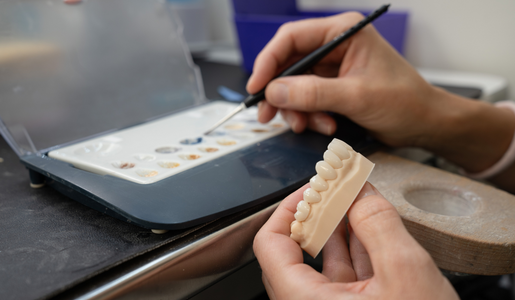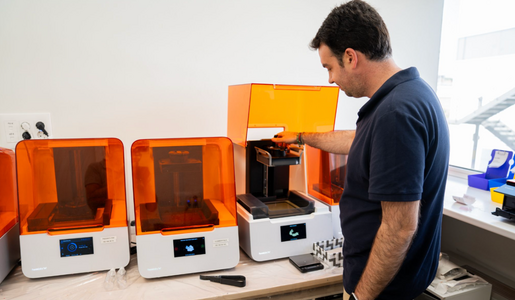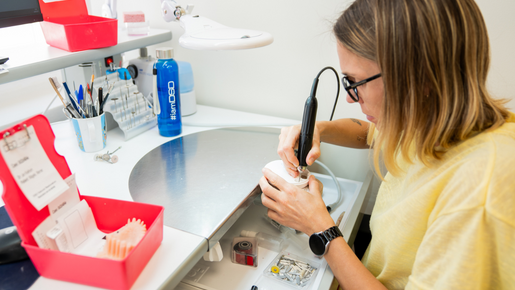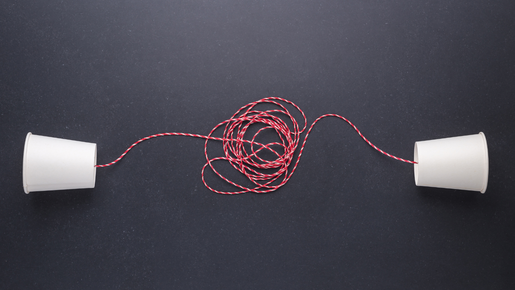We all know that having the right dental lab by your side can ensure smooth clinic workflows and high-quality results for your patients, while choosing the wrong one can be a source of added stress.
And though cost is not the only factor to take into account when it comes to selecting a dental lab, it’s certainly one to consider – especially when there can be so much variation in the prices that dental labs charge.
But why exactly do prices vary so much, and do higher prices always equal higher quality? In this post, we’ll break down the key elements that can influence the prices of dental laboratory products and services and look at why investing in a good dental lab can ultimately benefit your practice and your bottom line.

Factors impacting dental laboratory pricing
The prices that dental laboratories charge their clients depend on multiple factors. Some of the most important ones are:
Material costs
The quality and type of material the lab uses (such as zirconia, silicate, or porcelain) will have a direct impact on the price that you will pay. There can be a 60-70% cost difference between premium materials and low-cost materials.
Technology
If a dental lab works with advanced technologies such as CAD/CAM equipment and 3D printers, the cost of investing in these and maintaining them can increase the lab’s overall expenses and raise prices.
Specialist staff
Specialized labor is becoming increasingly scarce. Employing and training highly specialized technicians also has an impact on the cost of the lab’s services.
Urgent delivery times
Rush orders can often incur an additional fee.
Logistics
How much the dental lab pays for transportation and secure packaging will also affect the final prices that clients will pay.
Other factors that can prompt dental laboratories to adjust their rates include general operating costs, the laboratory's location and market strategies as well as external factors such as inflation, the availability of supplies or government regulations.
What factors can drive costs down for dental labs and their clients?
Dental laboratories can reduce their costs through material optimization and economies of scale. This includes efficient use of supplies, bulk purchases and choosing more affordable materials when possible. However, lower-cost materials can sometimes mean a drop in quality, which is why the DSD Lab always prioritizes bulk purchasing high-quality brands.
Other factors include automation using advanced technologies like CAD/CAM and 3D printers which can reduce time and errors, and staff training to increase productivity. Dental labs can reduce their logistical expenses through strategies such as consolidating shipments or negotiating rates with carriers.
In addition, dental labs may be able to secure discounts by building strong relationships with suppliers, while intelligent planning such as inventory management and batch production can go a long way towards bringing costs down.
What makes some dental laboratories expensive?
The most expensive dental laboratories will use high-quality materials, such as advanced zirconia or premium porcelains, and employ cutting-edge technology, such as CAD/CAM milling machines and 3D printers.
They also employ and train highly specialized technicians and use customized processes that take more time and attention to detail and increase the perceived value of their services.
Higher-cost dental labs implement strict quality controls and international certifications, such as ISO certifications, that guarantee the accuracy and durability of their products.
Other factors that can drive up prices for clients include being located in a high-cost area or having high operating expenses, and external factors such as the importation of specialized supplies and inflation also play a role.
If a dental lab is seen as a luxury provider or quality benchmark, this often justifies premium prices.
In summary, the more expensive laboratories combine experience, technology and exclusivity to offer excellent products and services, and are aimed at clients who prioritize quality over price.

What makes some labs so cheap?
Lower cost dental laboratories often use more affordable materials such as standard resins or lower-quality porcelains to reduce their costs, though this can impact durability and esthetics. Additionally, they use less advanced equipment and simpler production processes without customization, which reduces time and labor costs.
The lack of advanced technology such as CAD/CAM or 3D printers, and the standardization of products, also help keep prices low. These laboratories often rely on analog processes that significantly lower material costs.
These laboratories focus on mass production, which allows them to lower the unit cost, and typically operate in low-cost areas with smaller, simpler infrastructures.
They focus on offering competitive prices, targeting clients who prioritize savings, and managing shipping and logistics costs more efficiently by limiting associated expenses. These labs may also often have their own couriers and work in more localized regions. However, this business model may lead to lower quality and customization in their products.
Do dentists who buy less expensive products or services have to buy more of the same thing?
Dentists who opt for more economical products or services from dental laboratories may end up spending more over time due to the lower quality of the materials used.
This is because low-quality products tend to have a higher failure rate and require more replacements, repairs or adjustments, which can increase long-term costs. Additionally, extra working hours for corrections or revisions, along with expenses for urgent or expedited shipping, can also raise operational costs.
On top of this, there are indirect costs such as additional free patient appointments, use of clinic staff for extra follow-ups on repeat cases, bad publicity due to consistently poor results, and finally, the personal cost, frustration, and uncertainty throughout the entire process.
A digital dental lab at DSD
Here at DSD, the DSD Lab team is responsible for manufacturing all of the DSD Planning Center products. Clients who work with the DSD Planning Center can choose to work with their own dental labs or work directly with the DSD Lab.
Find out more about the type of products that you can order as a DSD Planning Center and DSD Lab customer.



